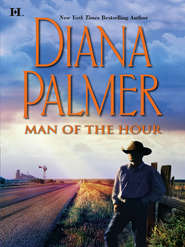По всем вопросам обращайтесь на: info@litportal.ru
(©) 2003-2024.
✖
Fearless
Автор
Год написания книги
2018
Настройки чтения
Размер шрифта
Высота строк
Поля
Consuelo didn’t ask any more questions, but her manner with Glory was gentle.
THE TRUCK FARM WAS HUGE. There were many fields, each with a separate crop, and the plantings were staggered so that something was always ready to harvest. The fruit trees were just being picked. Peaches and apricots, nectarines and kiwi fruit were first to harvest. The apple trees were varieties that produced in the fall. In between were berries, dewberries and raspberries and blackberries and strawberries.
“I’m going to be busy,” Glory exclaimed when Consuelo pointed out the various surrounding fields.
“We both are,” the older woman replied. “I was thinking about giving up this job. It’s too much for one woman. But two of us, we can manage, I think. The jams and jellies and pickles will add a lot to our revenue if they sell. They’re popular with tourists. We also stock them at the local florist shop, and they’re put in gift baskets. We have a processing plant for the organic vegetables and an online shop that our warehouse operates. They ship orders. But this is early days for our specialty canning. I’ve only managed to do the usual things, fruit preserves and jellies. I would love to do small batches of organic corn and peas and beans as well, but they mostly do those at the processing center in bulk. Besides, those require the pressure cooker to process and more time than I have had since Rodrigo took charge. He is a dynamo, that man.”
“Pressure cookers make me nervous,” Glory began.
“We’ve all heard terrible stories about how they can explode,” Consuelo chuckled. “But this is a new age. They all have fail safe controls now a days. Anyway, we won’t use them here. Let me show you what we’re working on. It’s an easy job.”
EASY. THE WORK WAS. Glory’s hip pained her, and she spent some of her time on a heating pad. But Consuelo found her a stool and she adjusted to the new physical demands of her job.
Rodrigo, however, was not easy. He seemed to have taken an instant dislike to Glory and was determined to say as little to her as possible in the course of a day.
He seemed to think she was a useless person. He was impersonally tolerant of her disability, but he often looked at her as if he suspected that her brain was locked away in a fleshy cabinet and was only taken out occasionally to be polished. She wondered what he’d think if he knew what she did for a living and why she was actually down here. It amused her to consider his reaction.
One day, he brought a new man into the house and told Consuelo that he would be overseeing the men while Rodrigo had to be away over the weekend. Glory didn’t like the newcomer at all. He seemed to never look anyone in the eye. He was small and swarthy and he made a point of staring at Glory’s body when he spoke to her. Already uneasy around men she didn’t know, this one was causing her some real problems.
Consuelo noticed, and she got between the man and Glory when he became too friendly.
“I cannot imagine what was in Señor Ramirez’s mind when he hired that Castillo man as an assistant,” Consuelo muttered to Glory when they were alone in the kitchen. “I don’t like having him around here. He’s spent time in jail.”
“How did you know that?” Glory asked. She knew the answer, but she wondered if Consuelo was just sensing the man’s past or if there was a reason for the remark.
“The muscles in his arms and torso are huge, and he has tattoos everywhere.” She mentioned one particular tattoo that marked him as a member of one of the more notorious Los Angeles street gangs.
Glory, who knew about gang members all too well, was surprised and impressed by the woman’s knowledge.
“What is he doing here?” Glory asked aloud, pondering.
“I would not dare to ask,” came the solemn reply. “Señor Pendleton should be told, but it would be worth my job to mention it outside the house. We will have to trust that Rodrigo knows what he is doing.”
“There’s a strange bird,” Glory remarked. “Rodrigo. He’s very cultured and quite intelligent. I’m sure he could write his own ticket in management anywhere he wanted to work. He seems out of place on a truck farm.”
Consuelo chuckled. “I would not ask that one anything which was not necessary for the performance of my job,” she replied. “From time to time, something upsets him. He is eloquent with bad words, and he does not tolerate sloppy work or tardiness. One man he scolded for drinking on the job was fired the same day. He is a hard taskmaster.”
“Yes, I thought he seemed that sort of man. He’s not happy.”
Consuelo looked at her and nodded. “You are perceptive. No, he is not. And I think that he is not usually a moody person. He must have loved his family very much. I notice how he is with my son, Marco, when he visits me.”
“You have children, then?” Glory asked gently.
Consuelo smiled. “Yes, a boy. He has just turned twenty-one. I adore him.”
“Does he live nearby?”
Consuelo shook her head. “He lives in Houston. But he comes to see me when he can. Especially when there’s a soccer game on cable—he can’t afford it, but Rodrigo had it put in here so that he doesn’t miss the games.”
“Soccer?” Glory’s green eyes lit up. “I love soccer!”
“You do?” Consuelo was excited. “Which team do you like best?”
Glory smiled sheepishly. “Mexico. I know I should support our own team in this country, but I love the Mexican team. I have a flag of the team that hangs in my living room during the World Cup and the Copita.”
“I probably should not tell you that I am related to a player on that team.”
“You are?” Glory exclaimed. “Which one?”
Before she could answer, Rodrigo walked in. He stopped in the doorway, scowling at Glory’s radiance when she smiled. “What did I interrupt?” he asked curiously.
“We were talking about soccer,” Consuelo began.
He glanced at Glory. “Don’t tell me you watch it?”
“Every chance I get,” she replied.
He made a sound in his throat, like a subdued chuckle. He turned to Consuelo. “I’m going to be away for the weekend. I’m leaving Castillo in charge. If you have any problems with him, let me know.”
“He does not…” Consuelo began, glancing at Glory.
“He doesn’t bother us,” Glory interrupted with a speaking glance.
“Since you have no contact with him, I can’t imagine why he should,” he told her. “If you need me, you have my cell phone number.”
“Yes,” Consuelo said.
He walked out without another word.
“Why didn’t you let me tell him?” Consuelo asked worriedly.
“He’d think I was complaining to you,” Glory said simply. “If Castillo gives me any trouble, I’ll take care of him myself.” She smiled gently. “You shouldn’t think that my hip slows me down very much,” she said softly. “I can take care of myself. But thank you for caring.”
Consuelo hesitated, then she smiled. “Okay. I’ll let you handle it your way.”
Glory nodded, and went back to work.
CASTILLO DIDN’T BOTHER them. But he did have a long conversation with a man in a white van. Glory watched covertly from the kitchen window, making sure she wasn’t visible to him. The van was old and beat-up and the man driving it was as muscular and as tattooed as Castillo. She made a mental note of the van’s license plate and wrote it down on a pad, just in case.
She shouldn’t have been so suspicious of people, she told herself. But she knew a lot about drug smuggling from the cases she’d prosecuted, and she had something of a second sense about the “mules” who transported cocaine and marijuana and methamphetamine from one place to another. Many of the “mules” were in street gangs that also helped distribute the product.
She and Consuelo were kept busy for the next couple of weeks as the fruit started to come in. They had baskets and baskets of it, picked by the workers and spread around the kitchen. If Glory had wondered why there were two stoves, she didn’t have to ask any longer. Both were going night and day as the sweet smell of preserves and jams and jellies wafted through the house.
Slowly Glory had become accustomed to seeing Rodrigo in the kitchen at mealtimes. He slept upstairs, so she didn’t see him at night. Sometimes she heard him pacing up there. His room was apparently right over hers.
She served Rodrigo bacon and eggs and the homemade biscuits she’d made since she was ten, because Consuelo had to go to the store for more canning supplies, including jars and lids. She poured coffee into a cup and put that on the table as well. She’d long since eaten herself, so she went back to peeling a basket of peaches.
RODRIGO WATCHED HER COVERTLY. She had her hair in its usual braid. She was wearing old blue jeans and a green T-shirt that showed very little skin. She wasn’t a pretty woman. He found her uninteresting. Not that it mattered. Now that Sarina was married, and she and Bernadette were no longer part of his life, not much did matter. He’d hoped that the reappearance of Bernadette’s father, Colby Lane, would make no difference to the close ties he had with the woman and child. But in scant weeks, Colby and Sarina were inseparable. They had been married years ago and it seemed that the marriage was never annulled. It was like death to Rodrigo, who’d been part of Sarina’s family for three years. He couldn’t cope. It was why he’d taken on this assignment. It was both covert and dangerous. He was known to the big drug lords, and his cover was paper thin since he’d helped put away Cara Dominguez, successor to famous, and dead, drug lord Manuel Lopez.











